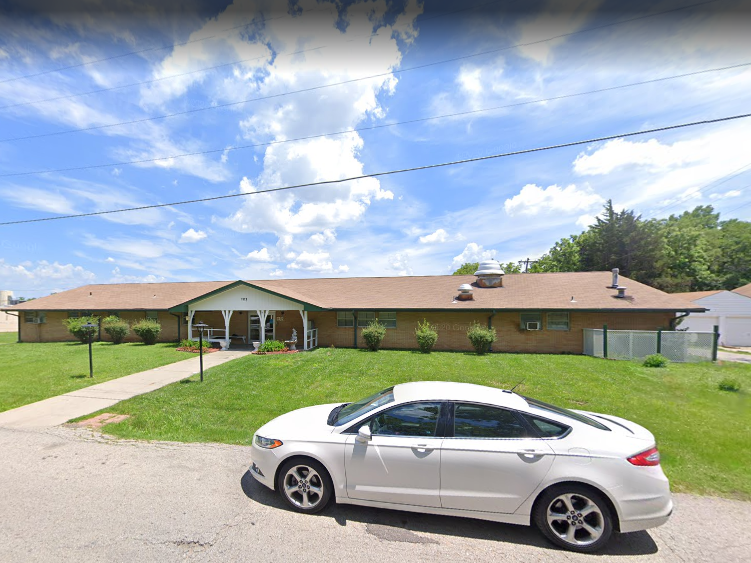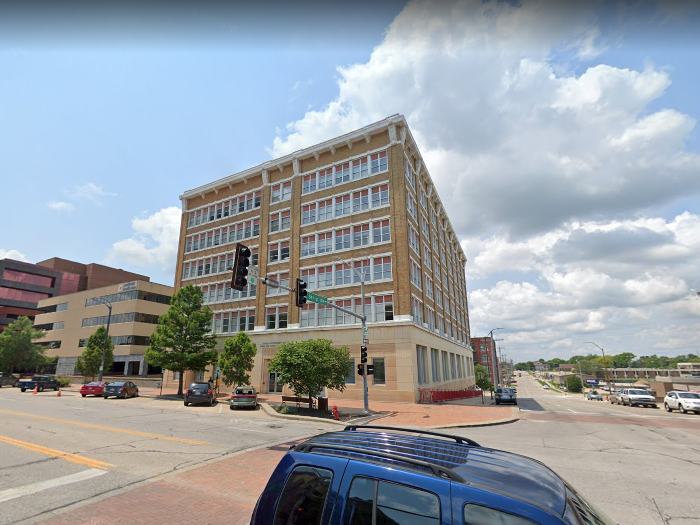Providence Living Center

Contact Details
-
Name:Providence Living Center
-
Address:1112 SE Republican Avenue
Topeka, KS - 66607 -
Phone:785-233-0588
-
Email:
-
Website:
Description
There are currently state and federally funded or sponsored drug and alcohol treatment centers in the state of Kansas
Questions & Answers
Help others like you find out more about Providence Living Center. Do you know the answers to any of these questions? Contribute now and help others like you.
What kinds of care do they offer?
-
Mental health treatment
Includes interventions such as therapy or psychotropic medication that treat a person's mental health problem or condition, reduce symptoms, and improve behavioral functioning and outcomes.
-
Treatment for co-occurring substance use plus either serious mental health illness in adults/serious emotional disturbance in children
Housing for individuals recovering from substance abuse that is designed to provide a drug and alcohol-free living environment and appropriate support services to facilitate movement to independent living. Such housing includes transitional living, sober houses, sober living, recovery houses, and 3/4 houses.
What type of facility is this?
-
Residential treatment center (RTC) for adults
Facility not licensed as a psychiatric hospital, whose primary purpose is to provide individually planned programs of mental health treatment services in a residential care setting for adults.
What types of treatment approaches do they offer?
-
Individual psychotherapy
Focuses on a patient's current life and relationships within the family, social, and work environments through one-on-one conversations with a therapist. The goal is to identify and resolve problems with insight, as well as build on strengths.
-
Group therapy
Involves groups of usually 4 to 12 people who have similar problems and who meet regularly with a therapist. The therapist uses the emotional interactions of the group's members to (1) help them get relief from distress and (2) possibly modify their behavior.
-
Cognitive behavioral therapy
Involves recognizing unhelpful patterns of thinking and reacting, and then modifying or replacing these with more realistic or helpful ones. The therapy can be conducted with individuals, families, or groups, and clients are generally expected to be active participants in their own therapy.
-
Activity therapy
Includes art, dance, music, recreational and occupational therapies, and psychodrama.
What type of setting is this location?
-
Residential/24-hour residential
Who is responsible for the operation of this facility?
-
State government
Government of a country subdivision in a federal form of government, which shares political power with the federal or national government and must meet certain standards set by the federal government, but are free to expand beyond what exists at the federal level and improve services, access, and protections for consumers, such as mental health and substance abuse services, in that state.
What types of payment or funding do they accept?
-
Cash or self-payment
Payment for treatment is made by the person directly, through cash or other means, rather than using health insurance.
-
Medicaid
A joint federal and state program that helps with medical costs for some people with low incomes and limited resources. Medicaid programs vary from state to state.
-
Medicare
The federal health insurance program for people age 65 and older and people with disabilities.
-
State-financed health insurance plan other than Medicaid
-
Private health insurance
-
Federal military insurance (e.g., TRICARE)
-
State mental health agency (or equivalent) funds
Funds designed to finance the cost of treatment for mental health conditions.
-
State welfare or child and family services funds
-
County or local government funds
-
U.S. Department of VA funds
What language services are offered?
-
Sign language services for the deaf and hard of hearing
Service provided for persons who are deaf and hard of hearing.
What specific groups are treated here?
-
Clients with co-occurring mental and substance use disorders
Facility has a program or group specifically tailored for persons with co-occurring mental and substance abuse disorders.
-
Lesbian, gay, bisexual, transgender, or queer/questioning (LGBTQ)
Facility has a program or group specifically tailored for LGBT clients.
-
Veterans
Facility has a program or group specifically tailored for Veterans.
-
Active duty military
Facility has a program or group specifically tailored for active duty military persons.
-
Members of military families
Facility has a program or group specifically tailored for Military families.
-
Criminal justice (other than DUI/DWI)/Forensic clients
Facility has a program or group specifically tailored for clients referred from the court/judicial system.
-
Seniors or older adults
Facility has a program or group specifically tailored for Seniors or older adults.
-
Clients with HIV or AIDS
Facility has a program or group specifically tailored for persons with HIV or AIDS.
-
Clients who have experienced trauma
Facility has a program or group specifically tailored for persons who have experienced trauma.
-
Clients who have experienced intimate partner violence, domestic violence
Facility has a program or group specifically tailored for persons who have experienced intimate partner violence, domestic violence.
-
Persons 18 and older with serious mental illness (SMI)
Facility has a program or group specifically tailored for persons with serious mental illness.
-
Persons with post-traumatic stress disorder (PTSD)
Facility has a program or group specifically tailored for persons with post-traumatic stress disorder.
-
Persons with traumatic brain injury (TBI)
Facility has a program or group specifically tailored for persons with traumatic brain injury.
-
Persons with eating disorders
Facility has a program or group specifically tailored for persons with eating disorders.
-
Persons experiencing first-episode psychosis
Facility has a program or group specifically tailored for persons with eating disorders.
What ancillary services are offered at this facility?
-
Case management service
Helps people arrange for appropriate services and supports through a case manager who monitors the needs of clients/patients and their families and coordinates services, such as mental health, social work, health, educational, vocational, recreational, transportation, advocacy, and respite care, as needed.
-
Illness management and recovery
Uses a standardized individual or group format based on five evidence-based practices: 1) Psychoeducation, 2) Behavioral tailoring, 3) Relapse prevention training, 4) Coping skills training, and 5) Social skills training.
-
Psychosocial rehabilitation services
Offered individually or in groups, provide therapeutic or intervention services such as daily and community-living skills, self-care and skills training (grooming, bodily care, feeding, social skills training, and basic language skills).
-
Vocational rehabilitation services
Include job finding/development; assessment and enhancement of work-related skills (such as writing a resume or taking part in an interview), attitudes, and behaviors; as well as providing job experiences to clients/patients. Transitional employment is also included.
What specific pharmacotherapy treatments do they provide?
-
Non-nicotine smoking/tobacco cessation
Are medications that do not contain nicotine but act on the brain to reduce a person's craving for tobacco. Some common medications are Bupropion (Zyban, Wellbutrin), and Nortriptyline (Pamelor). Medications are often prescribed in conjunction with behavioral counseling or support groups to provide the best chance for achieving long-term smoking abstinence. (http://www.mayoclinic.com)
-
Fluphenazine
Fluphenazine is a decades-old antipsychotic medication used to treat schizophrenia and psychotic symptoms such as hallucinations, delusions, and hostility.
-
Haloperidol
Haloperidol is used to treat psychotic disorders and is also used to control motor tics and verbal tics in adults and children who have Tourette's disorder. Haloperidol is also used to treat severe behavioral problems such as explosive, aggressive behavior or hyperactivity in children who cannot be treated with psychotherapy or with other medications. Haloperidol is in a group of medications called conventional antipsychotics. It works by decreasing abnormal excitement in the brain.
-
Thioridazine
-
Clozapine
-
Risperidone
-
Antipsychotics used in treatment of SMI
A multi-disciplinary clinical team approach, helps those with serious mental illness live in the community by providing 24-hour intensive community services in the individual's natural setting.
What types of screening and assessment methods are used here?
-
Screening for tobacco use
Determines a client's use of tobacco products, such as cigarettes, cigars, pipe tobacco, or smokeless tobacco. It is generally recommended that providers screen for tobacco use on a regular basis by asking clients, as they are seen, about their current and past use of tobacco products and their exposure to secondhand smoke or tobacco.
What kinds of education and counseling services are offered here?
-
Smoking/vaping/tobacco cessation counseling
Includes interventions for persons who use tobacco and want help with stopping, including behavioral support or counseling in groups or individually.
What age groups are accepted here?
-
Young Adults
Facility accepts young adults (13-25) for treatment.
-
Adults
Facility accepts adults (26-64) for treatment.
-
Seniors
Facility accepts seniors (65 or older) for treatment.
What types of testing do they offer?
-
Laboratory testing
Is vaping allowed at this facility?
-
Vaping permitted in designated area
How do I apply for admission at this location?
Have you been to this facility? What was your experience?
Is there a wait-list for treatment center?
Is any payment required?
Related Posts
Kansas Department for Aging and Disability
- Topeka, KS
- 1.57 miles away

